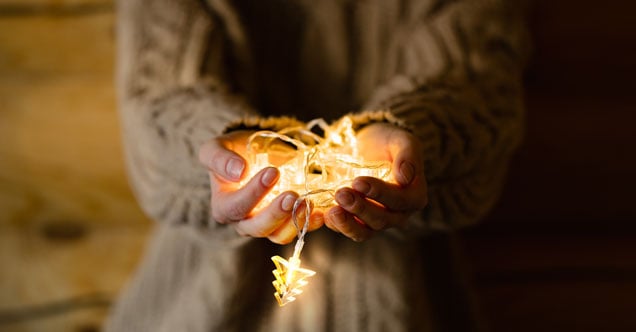
Dr. Melissa Kimmerling, EdD, MOT, OTR/L is the Occupational Therapy Program Director at Nebraska Methodist College (NMC) and acts as part of the Social Justice and Inclusion Committee. As an NMC guest blogger, she shares a list of how to support individuals with disabilities and make the holidays enjoyable for all members of the family.
The holidays can be a time of happiness, cheer and good will for many. The lights, the parties — who wouldn’t be filled with joy? Unfortunately, this time of year may be even more difficult for individuals with disabilities.
You may find yourself in the presence of someone with a disability this holiday season, and we hope the following tips help you all get the most out of the holiday experience.
Tips for a Parent Caregiver of a Person with a Disability
You know your child intimately, and have likely created a routine that works well for you at home. This time of year can throw so many extra things into that routine, and before you know it, you may be seeing behaviors or dealing with challenges you thought you had a good handle on.
Here are 5 tips to help you make sure the holidays are enjoyable for all members of the family:
1. Keep lights and decor to a minimum.
We all know that lights and decor seem to come with the season. For an individual with a neurological disorder like Autism or a traumatic brain injury, the addition of more sensory stimulus may be too much to handle. Consider keeping the decor to a minimum, especially additional lighting. Additional lights and sounds can overwhelm the sensory system, and the individual may start demonstrating behaviors or forms of communication you are not used to seeing.
2. Set the expectations.
Family and friends often gather in our homes over the holidays, and this can cause undue stress for our loved ones. Prior to the party, consider sending out a little update on your loved one with a disability. Let them all know how he/ she is doing this year, and any special requests for the get together such as “No singing” or “Little Jack does not enjoy being hugged.” Your guests will be grateful for the additional information.
3. Set a schedule, and stick to it.
If your loved one has difficulty when routines change, consider making a schedule for your party and reviewing it with your loved one. Perhaps laminate it, and let the individual follow along, checking off items as they happen.
4. Keep a safe space within the home.
Designate a spot in your home the individual can go to if it all becomes too much to handle. Inform your guests of the purpose of the space, and be on the lookout for signs the individual needs a break, such as increased “stimming” or an increase in other behaviors not typical for the individual. Stimming, or self-stimulatory behavior, is the repetition of physical movements, sounds, words or moving objects.
5. Encourage participation consistent with the individual's capabilities.
Does your loved one enjoy passing out gifts? Or helping with meal preparation? Think ahead of time how they can be actively included. The worst thing is when someone is “present” but not included.
How to Help as a Community Member
You may not have an individual with a disability in your family, but there are things you can do this holiday season to support those in your own community and beyond.
In our community of Omaha, Nebraska, the following organizations support individuals with disabilities throughout the entire year. Consider a donation to any of these organizations in lieu of exchanging holiday gifts:
1. The Autism Center of Nebraska
2. The Developmental Disability Center of Nebraska
5. Down Syndrome Alliance of the Midlands
6. Epilepsy Foundation of North Central Illinois, Iowa and Nebraska
7. Learning Disabilities Association of America
8. Muscular Dystrophy Association
9. United Cerebral Palsy of Nebraska
10. American Heart Association
This is by no means an all-inclusive list. We encourage you to search for a cause that is near and dear to your heart!
The holidays are meant to bring out the best in us. Keep these tips in mind, and we can help to ensure they are the best for everyone.
References:
https://allbelong.org/supporting-persons-with-disabilities-through-the-holidays-part-2/
https://www.scioto.com/3-tips-to-support-people-with-disabilities-through-the-holidays/
https://vkc.mc.vanderbilt.edu/assets/files/resources/disabilitiesholidays.pdf